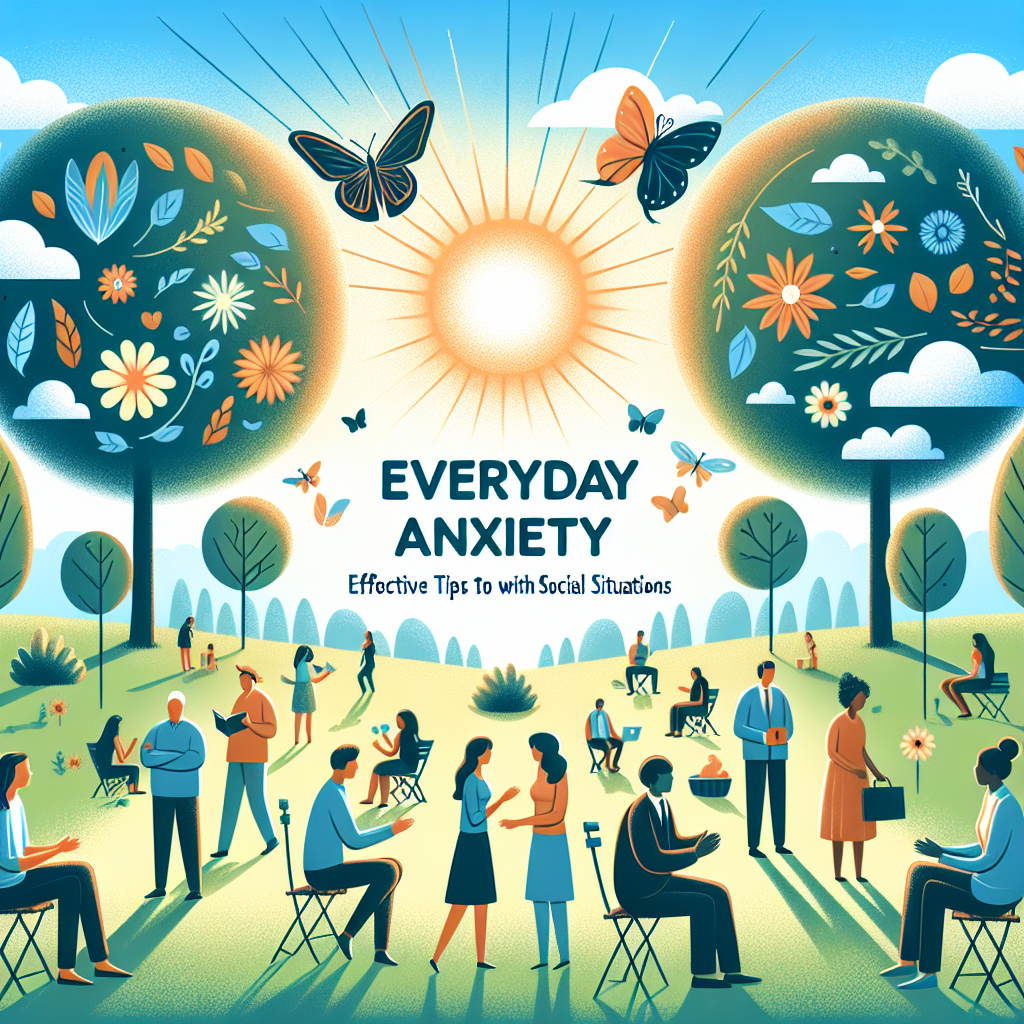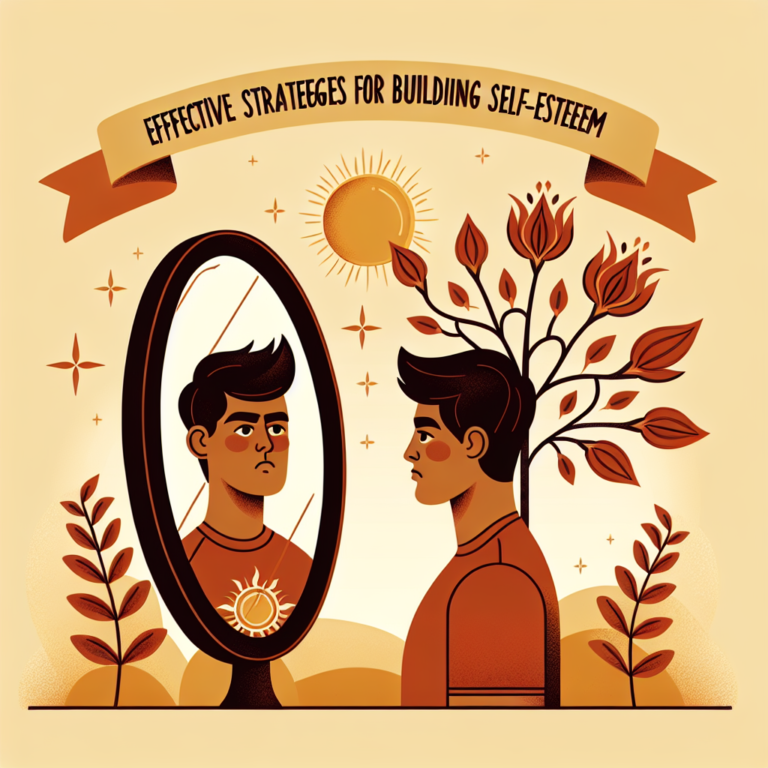
Everyday Anxiety: Essential Tips to Cope with Social Situations
Introduction
In today’s fast-paced world, anxiety often lurks behind social interactions, casting a shadow over what should be joyous experiences. If you’ve ever felt your heart race at the mere thought of mingling at a gathering or had an overwhelming desire to escape a social setting, you’re not alone. Everyday anxiety can affect anyone, and learning effective strategies to navigate these situations is essential for enhancing your quality of life.
While we can’t eliminate anxiety entirely, we can cultivate a toolkit made up of effective tips to cope with social situations. This article will delve into practical strategies, case studies, and expert insights to help you face your fears head-on, transforming anxiety into confidence.
Understanding Everyday Anxiety
What Is Everyday Anxiety?
Everyday anxiety refers to the feelings of apprehension and tension that emerge from day-to-day situations, particularly in social contexts. Factors such as fear of judgment, the need for approval, or the stress of navigating complex social dynamics can all contribute to this experience.
Real-World Impacts
Consider Sarah, a marketing executive who becomes visibly anxious when required to give a presentation in front of her team. Despite her expertise in the subject, her heart races, and her palms sweat as she imagines the room filled with skeptical colleagues. Everyday anxiety not only detracts from her performance but also sows seeds of self-doubt that affect her personal life, leading her to avoid social gatherings altogether.
Here’s a look at some statistics that illuminate the prevalence of everyday anxiety:
| Statistic | Percentage |
|---|---|
| Adults experiencing anxiety symptoms | 31.1% |
| Those who avoid social situations | 23.2% |
| Individuals with social anxiety disorder | 12.1% |
Effective Tips to Cope with Social Situations
1. Practice Mindfulness and Relaxation Techniques
Mindfulness and relaxation techniques are potent antidotes to anxiety. Engaging in deep-breathing exercises and meditation can help ground you in the present moment.
Case Study: Jason’s Experience
Jason, a college student, struggled with intense anxiety during group projects. He began practicing mindfulness meditation daily, focusing on his breath before group meetings. Over time, he found that mindfulness not only reduced his anxiety but also improved his focus and collaboration skills.
Practical Exercise: 4-7-8 Breathing
- Inhale through your nose for 4 seconds.
- Hold your breath for 7 seconds.
- Exhale through your mouth for 8 seconds.
Repeat this cycle three times to bring your mind back to a calm state.
2. Prepare and Role-Play
Preparation can eliminate uncertainty, a significant source of anxiety. Engaging in role-play scenarios provides a safe space to practice responses and gain confidence.
Case Study: Emma and The Networking Event
Emma, a recent graduate, faced anxiety over her first professional networking event. She teamed up with a friend and practiced various small talk scenarios. When the event arrived, Emma felt significantly more at ease, facilitating meaningful conversations that led to valuable connections.
3. Challenge Negative Thoughts
Anxiety often stems from irrational fears. It’s vital to identify negative thoughts and challenge them with evidence and logic.
Cognitive Behavioral Technique
- Identify: Write down your anxious thoughts.
- Challenge: Look for evidence to dispute these thoughts.
- Replace: Create a more positive and realistic thought.
For example, instead of thinking, "Everyone will judge me," consider, "Most people are focused on themselves."
4. Gradual Exposure to Social Situations
A gradual approach to social situations allows you to “train” your brain to cope with anxiety. Start with smaller gatherings and progressively expose yourself to larger groups.
Case Study: Michael’s Progress
Michael felt overwhelmed at parties. He started with coffee dates with friends before progressing to small parties. With each experience, he built resilience until he felt comfortable attending larger gatherings.
5. Focus on Others, Not Yourself
Shifting your focus from yourself to others can alleviate performance pressure. Rather than fixating on your anxiety, concentrate on listening and engaging with those around you.
Tips for Effective Listening
- Maintain Eye Contact: This fosters connection and makes others feel valued.
- Ask Open-Ended Questions: This encourages conversation and takes the spotlight off you.
6. Limit Social Media Exposure
Social media can exacerbate feelings of inadequacy and anxiety, often making people feel they aren’t measuring up. Limiting your exposure or curating your feed can help mitigate this negative influence.
Summary of Effective Tips
| Tip | Description |
|---|---|
| Mindfulness | Engage in breathing exercises and meditation. |
| Preparation and Role-play | Practice conversations beforehand. |
| Challenge Negative Thoughts | Identify and reframe anxious thinking. |
| Gradual Exposure | Start with small groups, increasing gradually. |
| Focus on Others | Engage in active listening and ask questions. |
| Limit Social Media | Reduce exposure to unrealistic standards. |
FAQs About Everyday Anxiety
1. What causes everyday anxiety?
Everyday anxiety can stem from a multitude of factors, including past experiences, personality traits, and external pressures. Social expectations and perfectionism often exacerbate these feelings.
2. How can I support a friend with anxiety in social situations?
Be present for them—offer to accompany them to events, check in physically or emotionally, and encourage them gently without pushing them beyond their comfort zone.
3. Is everyday anxiety the same as social anxiety disorder?
While everyday anxiety is common and can affect many, social anxiety disorder involves a diagnosis characterized by intense fear and avoidance of social situations that significantly impair one’s daily life.
4. Can therapy help with everyday anxiety?
Yes, therapy, especially cognitive-behavioral therapy (CBT), can be very effective in managing anxiety by providing tools for coping and reframing negative thoughts.
5. What are some simple coping strategies I can use immediately?
Try techniques such as deep breathing, positive affirmations, practicing self-compassion, or engaging in physical activity.
Conclusion
Facing everyday anxiety can feel like an uphill battle, but you’re not alone, and solutions are within your reach. By implementing the effective tips discussed in this article, you can transform anxious moments into opportunities for connection and joy.
Ultimately, it’s about progress, not perfection. Each small step you take towards embracing social situations will build your confidence and resilience. Remember, every great journey begins with a single step—take yours today and start to experience the freedom from anxiety. You have the power to change your narrative and rewrite your interactions with positivity and courage.
Now armed with essential tactics for handling everyday anxiety, go forth and embrace the social world with renewed confidence!

















